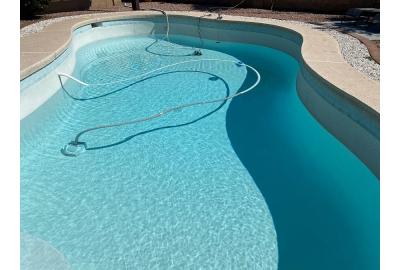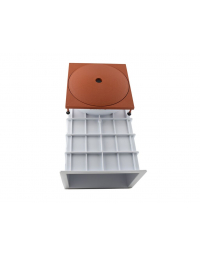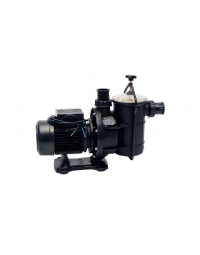Have you noticed that you have been filling up your pool a little too frequently lately? There are a number of explanations for this – either the pool is losing water due to evaporation, or there may be a leak due to a system or structural defect.
To determine the cause of the water loss, you simply need a bucket and access to the pool’s steps.
- Place the empty bucket on the second step of the pool and fill it up to match the level of the pool’s water.
- Make a marker on the line of water inside the bucket so that you can remember where the pool water level started.
- Turn the pool pump off and leave the bucket as is for 24 hours.
- After 24 hours, come back to the bucket and check if the water level has dropped. If the water level has dropped in the pool as well as in the bucket, the water loss is simply due to evaporation. However, if the water in the bucket is the same, but the water in the pool has dropped, you may have a leak on your hands.
If you want to narrow down the source of the possible leak, repeat this process leaving the pool pump on. If, after the 24 hours, the pool has lost a significant amount of water, the leak is most probably caused by a system or structural defect.
Now that you know you have a leak, what’s next?
Well, the next step is to find the source of the leak. Sealants are designed to seal the walls of the pool, however, just like the pool equipment, sealants age and deteriorate. There could be a crack somewhere along the walls of the pool where the sealant has worn away. In order to solve this, start to drain the pool, and observe how and where the water moves. If the pool drains quickly and all the way down, then the leak is most likely at the bottom of the pool.
If the pool water stop draining once it has passed the leak, proceed to check the walls and floor of the pool for possible weaknesses. Once you have identified where the possible leak is, carefully and without disturbing the water, squirt some colourful dye into the water and watch where the dye moves to. Theoretically, the dye should move toward the leak and proceed to leak out of the pool.
How to Detect and Fix a Suction Leak
The suction line connects the pump and the weir. When the pump turns on, this creates a suction from the weir to the pump. This allows the weir to draw in water from the pool and feed it through the suction line to the pump. The pump then sends the water through the pool system and back into the pool via the aimflow.
So how does one determine if there is a suction leak?
If the pool cleaner is not working as efficiently as it should and there are bubbles coming through the aimflow, this is a good indicator that there might be a suction leak. In order to fix a suction leak, it is important to identify if the leak is from the weir or the suction line. A leak from the weir can be identified by either a crack in the weir or the fitting that connects the weir to the suction line has broken.
If the leak is in the suction line, this would be due to a crack in the pipe. Depending on where the leak is, either the weir or the suction line would need to be replaced in order to fix the leak.
Another indication for a suction leak is if there is air entering the pool system. This can be determined as follows:
- Turn the system off
- Disconnect the pool cleaner
- Turn the system back on
- Allow the pump to fill to the top
- Reinstall the pool cleaner
- Watch to see if the water level in the pump drops. If so, this would indicate a suction leak or a weir leak.
Bearing in mind that the weir and the suction line are installed underground and not easily accessible, The Pool Team highly recommends having a professional attend to the problem at hand in order to avoid further damage to the pool system. Watch this video to learn more about how to detect a suction leak.
Contact a professional at The Pool Team for further advice on your personal solution to finding and fixing a leak.




